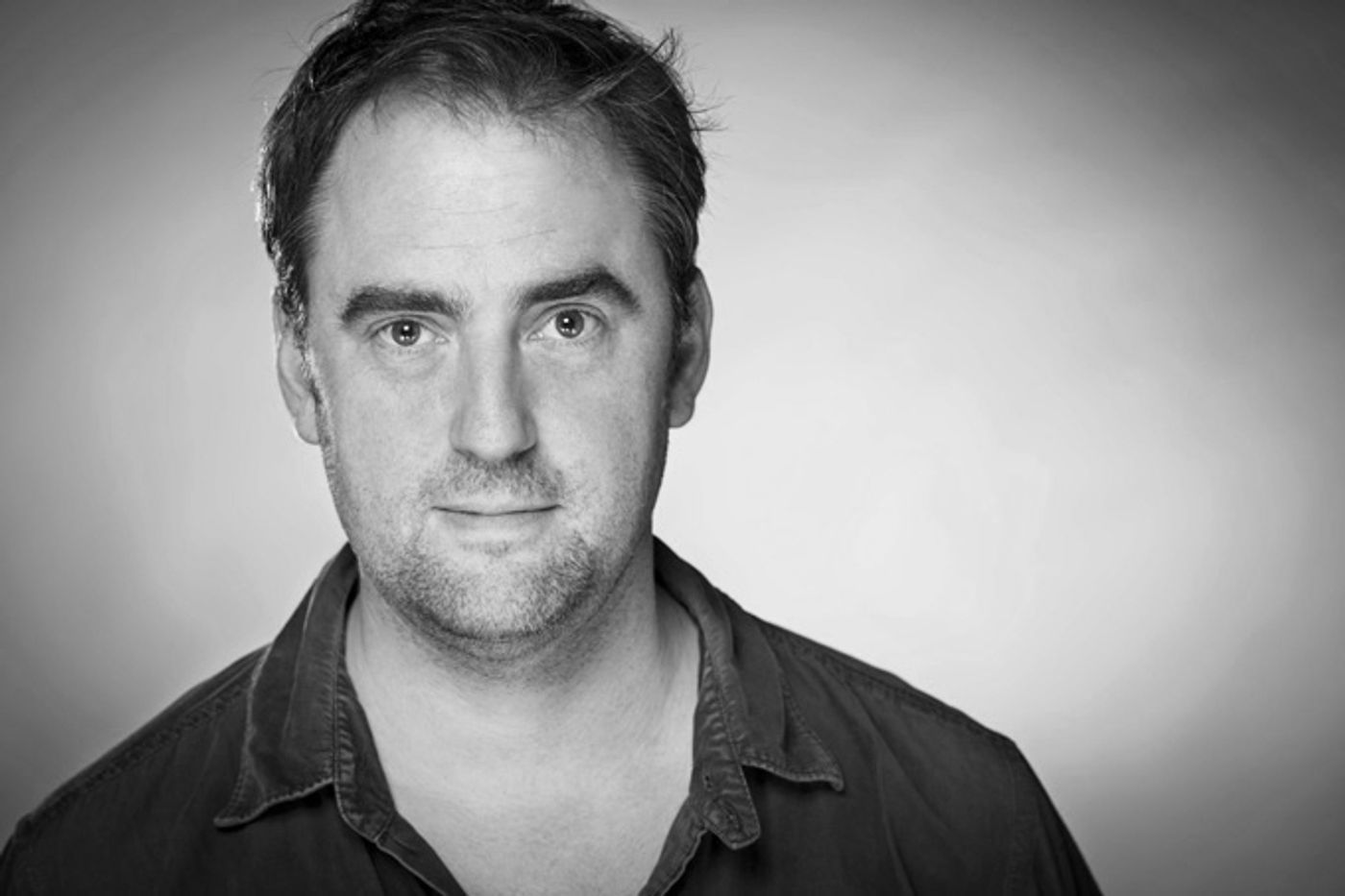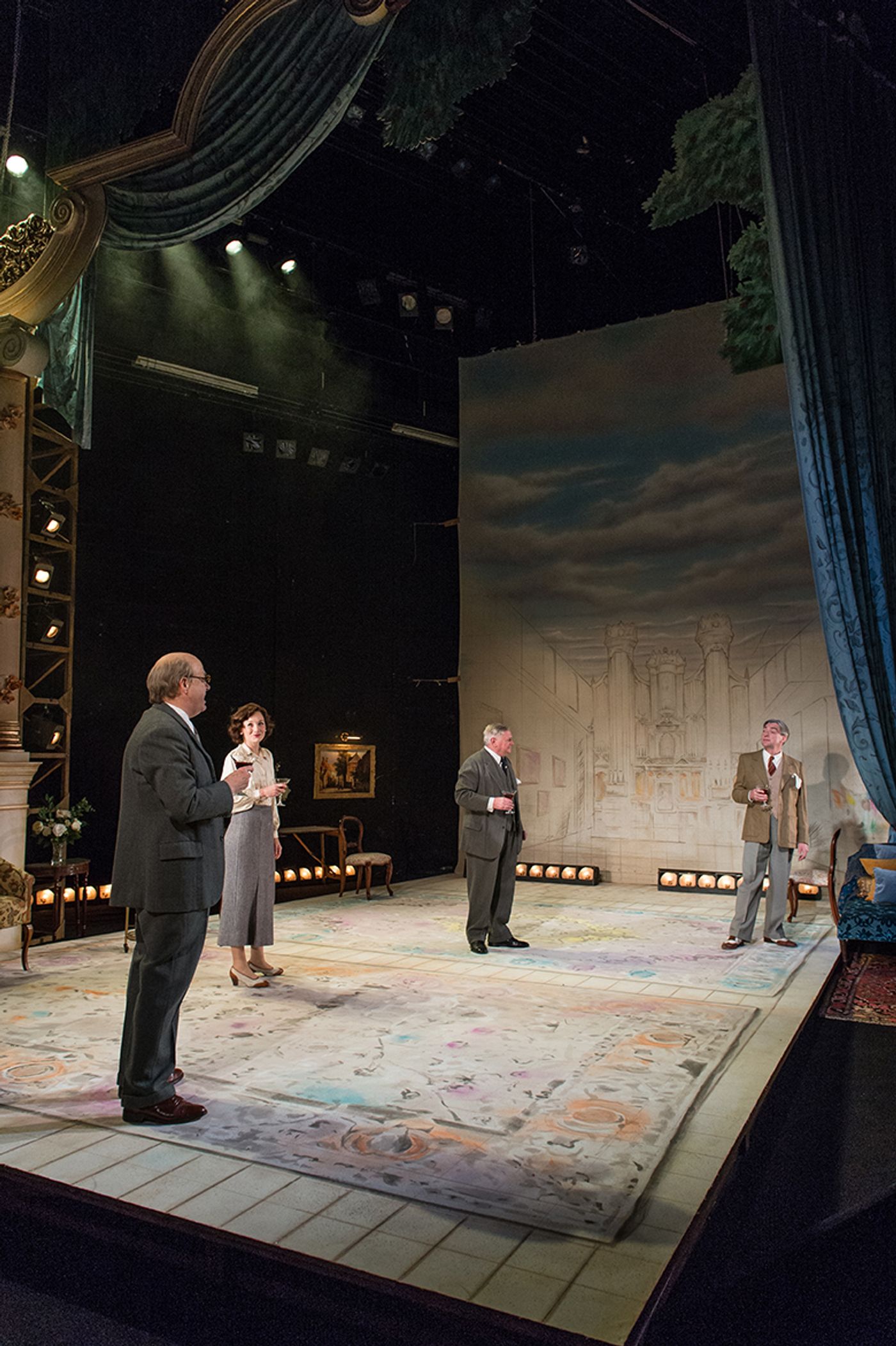Interview: Jeremy Herrin Talks THE MODERATE SOPRANO

Earlier this week, we spoke to Nancy Carroll about The Moderate Soprano's return to the London stage after two years.
Continuing our interview series, director Jeremy Herrin reveals how the world inside of the play has changed in that time, and how the world outside of the play has too.
What was your first experience with theatre?
I used to live in the North-East, in rural Northumberland. My mum would take me to Newcastle to see the Royal Shakespeare Company, so throughout the Seventies I saw some amazing productions at the Theatre Royal and Newcastle Playhouse there.
Was it early on that you realised you wanted to be involved in that world of theatre?
Yes, but I didn't think about it as a career or anything until I was about the age of 17, when I was lucky enough to direct a play. It was then I really thought that's what I really want to do with my life. I was lucky.
Was there ever another career path?
No. Although...sometimes the industry and its lack of interest in me made me wonder!
But I could never think of anything else I wanted to do as much. So I stuck at it, because I've always been so passionate about it.
You've had an illustrious career since that early start, in both your role as director and now Artistic Director of Headlong. What have you learned along the way?

of The Moderate Soprano
Well, with every show, you learn something about yourself and also something about the medium. I would hesitate to point to one production which I learned the most on, because I'd hope that I've learned something different from each, incrementally over the years.
And I often choose projects with that in mind, thinking that I've never done something like that before. Because that's kind of intimidating and frightening, to do that. You know, "Will I be able to do it?".
I did a farce because I'd never done a farce before. And I thought that would be technically demanding and that then gave me skills to use in other work. I did a Shakespeare play for the same reason and musicals too.
So I often make a choice with what I'm directing based on taking myself out of my comfort zone. I like that challenge, and I'm always surprised by what I learn.
And what's been the biggest challenge you've faced in your career?
Well, the biggest challenge is the fact that you don't get paid. At the point in your career when you need the most support, the industry doesn't fund you.
So you have to live in poverty to get good at what you do. Or you succumb to doing work purely for money, and then you squander whatever artistic integrity that you've been building up.
And unless we address this pay issue as an industry, it means the people who are the lens through which these stories are told are going to be of privilege. And I think that will be to our culture's detriment.
That's why I believe the Stage Directors UK is an important thing, to make that argument.
You're currently working on The Moderate Soprano, for the second time. What initially drew you most to this project?
I've got a happy working relationship with David Hare. He's a particularly brilliant writer. All of his work is political, but some of his plays are indirectly political and more romantic. South Downs is one of them and The Moderate Soprano is another. As plays, they're in correspondence with each other, through their Sussex location as much as anything.

in The Moderate Soprano
And were you familiar with the historical subject of the play, before the first run?
Well, I think The Moderate Soprano represents a really interesting story. I think everybody thinks they know what Glyndebourne is, and what Glyndebourne might be, and how Glyndebourne started. But the reality is surprising.
It's actually a story about refugees and Europe. And it's a story about women, marriage, and art. Glyndebourne is a testament to the wit and invention of Audrey Mildmay. And it's nice to reclaim her in this: from being stood behind her husband to coming to the forefront. And to tell the Glyndebourne story as her triumph in a very real way.
Had you ever been to Glyndebourne?
I've now been to Glyndebourne, as a direct result of researching this show. And I've subsequently gone back since and seen some opera there. It's not my natural environment, opera. But because of my relationship with the play, I'm really interested to see and explore it.
It's a complex art form, both in terms of how it's delivered and how it works in the space. But also, in terms of who feels ownership of it and access to it. Full of interesting contradictions.
It's now three years since the last production. Have there been any notable changes with this incarnation?
There have been some rewrites that have provided more momentum and drama in the first half. We've got a new design from Bob Crowley. And a few new actors: Anthony Calf, Jacob Fortune-Lloyd and Jade Williams join Roger Allam, Nancy Carroll and Paul Jesson.
What is the process of re-rehearsing, and returning to the play?

in The Moderate Soprano
It's always a process of simplification. Re-rehearsing it, you understand more and are able to refine those choices. That makes it really legible for the audience.
And having let the play percolate for a few years, it's interesting what's important when it comes back to you. Things that you thought were important the first time are actually less so now.
But of course, the big stuff that's really exciting is that the world outside the play has changed radically.
Absolutely. So how do you think the play resonates with audiences today?
A play about European cultural integration was relatively interesting and significant in Hampstead, three years ago. Now, post-Brexit, it's sharpened all of those themes immeasurably.
You know, people talk about Glyndebourne being quintessentially English. And I think one thing that is quintessentially English is that we are open to immigrants and our culture is based on other people coming here and doing what they do.
At our best, I think we are a remarkably open, tolerant and welcoming society. So that's an interesting thing to talk about in the present climate.
Powered by
|
Videos

